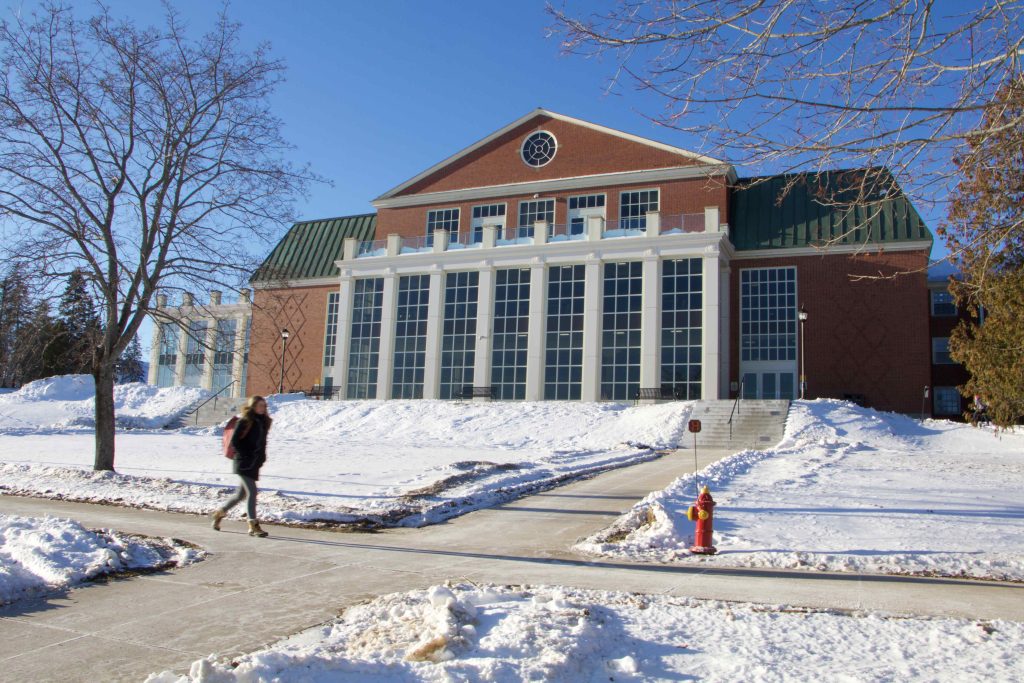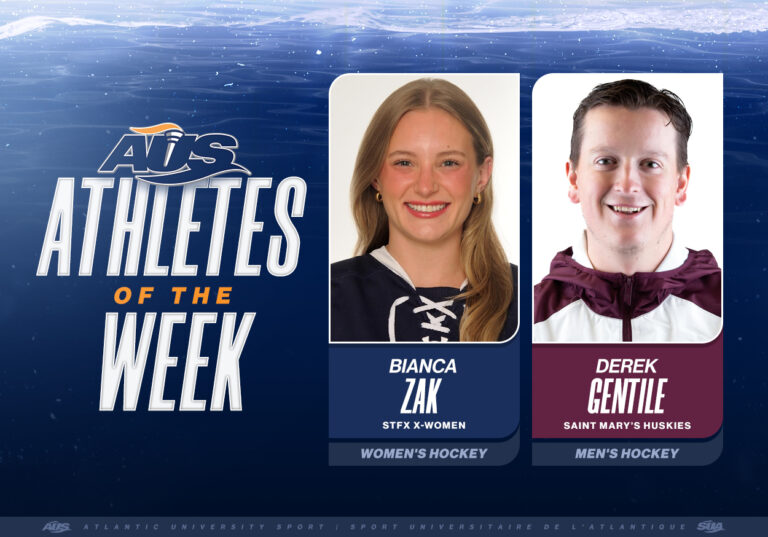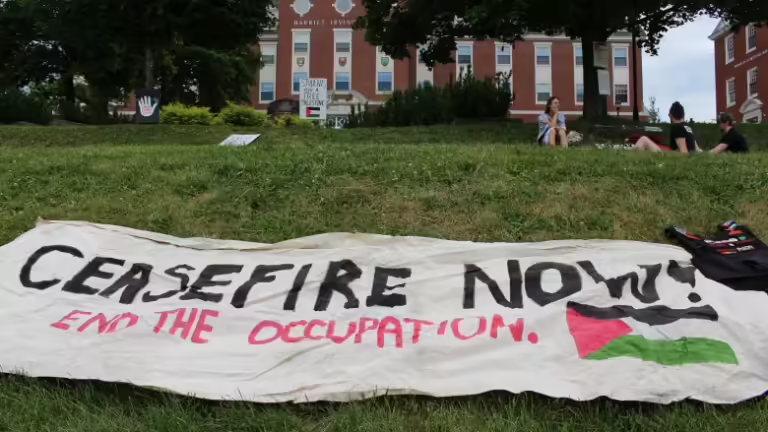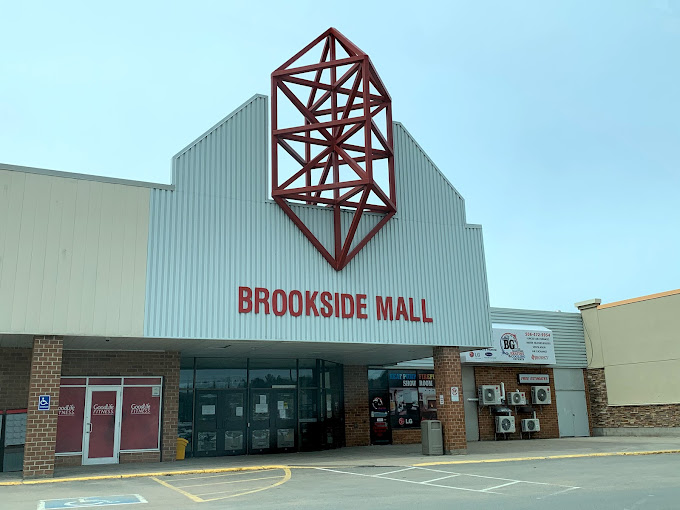At last Sunday night’s council meeting, the UNB Student Union approved a fee increase of $1.50 per semester despite no formal student consultation process, causing lengthy debate at council and concerns of transparency issues.
The current UNBSU executive was advocating for the fee increase because they were concerned about covering costs associated with upcoming fee increases and want to up their revenue for events next school year.
This increase is a response, in part, to the $1 per student fee increase that the New Brunswick Student Alliance (NBSA) passed at their annual general meeting earlier in March. The other 50 cents is being put towards costs of running the UNBSU.
The NBSA, a joint student organization between four New Brunswick universities—UNB Fredericton, UNBSJ, STU and Mount Allison—that advocates for post-secondary education in the province, charges member universities per student. This fee sources the majority of the organization’s revenue. Currently the NBSA fees sit at $5 per student but is set to increase by $1 next year.
This NBSA fee increase meant that the UNBSU had to find enough money to pay a total of $33,600 in fees to the NBSA, compared to the $27,380 they currently pay. The UNBSU currently pays the most in fees to the NBSA because it has the most students.
Sam Titus, acting executive director of the NBSA, said that although their fees “increase each year automatically by inflation,” which is typically around 2 per cent, the NBSA has long been pushing for a fee increase “in order to expand the capacity of the NBSA…to ensure the growth and improvement of the organization.”
These “improvements” include new office supplies, an extended travel line and more flexibility for paying interns, next year’s Get Out the Vote campaign and funding to hire a non-permanent, full-time staff, according to Titus.
The UNBSU executive said in a statement to The Brunswickan that increasing their fee to compensate for the NBSA fee raise “was a possibility we had no knowledge of until last week.” The UNBSU had initially thought that the deadline to introduce a fee raise of their own had already passed.
Incoming UNBSU executive originally pitched a $2.50 increase to the Student Union fee
The new executive of the UNBSU, headed by incoming president Richard Du, originally requested to increase their fee by $2.50—a dollar more than what the council eventually passed.
Emily Meagher, current residence councillor and incoming vice-president finance, explained that the UNBSU recently learned that they’d have to pay an extra $200-300 in insurance for every Safe Ride driver that doesn’t have at least six years of driving experience, which will be another increased cost on the budget for next year.
“We believe that the $2.50 increase will give us the funds to account for these unforeseen circumstances as well as giving us that room for growth for a student union,” said Meagher.
Meagher said that this fee increase will also help them match the inflation rate, or at least a percentage of it, since, unlike the NBSA, the UNBSU fee does not automatically account for inflation.
Currently full-time undergraduate students at UNB pay $57.50 per semester to the UNBSU.
“We’re looking at increasing our fees by $2.50 per semester for our students, which would bring us up to $60 per semester and $120 per year, so still substantially lower than other unions,” said Meagher, who added that UNB Fredericton has the lowest student union fee in New Brunswick, followed by the STUSU, which charges $143 a year.
UNBSJ’s Students’ Representative Council charges a $140 fee to students per year.
The last time the UNBSU fee increased was in 2015-2016. The $10 per semester increase brought the UNBSU fee from $95 per student per year, to $115 per student per year. This fee increase was also voted on by UNBSU council with no formal consultation with the student body.
Issues of transparency and size of fee increase caused the proposed $2.50 increase to fail
Ben Palmer, incoming vice-president student life, said that the incoming executive wanted the extra money from the $2.50 increase to fund career opportunities for students and expand their events repertoire, including introducing a musical festival after orientation week and expanding homecoming.
While Palmer, Du and incoming vice-president internal Ali Balcom campaigned together on a platform that included these types of events, their platform had no mention of the need for a fee increase to make them a reality.
The council discussed the issue of transparency and many councillors did not like the idea of approving the fee raise without a plebiscite or consultation with students. Some also expressed concern about so much money being allocated for more events.
Councilor Jackie Toner pointed out that there are approximately 5505 members of the UNBSU and that if the Student Union was left with an extra $20,000 and used it on an event that might only impact 100 students, it wouldn’t have enough value worth charging every single student who may not actually benefit.
“People either go out to everything or the event is a complete bust, and so if you’re spending that money and it goes to be a complete bust, then you just wasted 5,000 students’ money,” said Toner.
Councilor Seshu Iyengar said that while he would approve a $1 or $1.50 increase to counteract the unforeseen circumstances concerning Safe Ride and the NBSA, the extra dollar that would be used largely for events is not something he would vote for.
Councillor Abram Lutes said he didn’t think there should be an increase without a plebiscite or consultation with students. While he understood needing to pay for essential services, he said that anything beyond that was “fun money”.
“There are some basic functions that this union is supposed to fill, and for me those are essential services like Safe Ride, the Student Legal Information Centre, a few other things, as well as, you know, lobbying and campaigns to support our advocacy goals,” said Lutes.
“Anything beyond that is fun money…I don’t think that they should come before accurately representing our students, accurately consulting them and doing the basic functions of a student union.”
Du said in a statement after the meeting that the goal of the incoming executive in regards to event planning is focused on more effective management of UNBSU events than creating events additional to the current schedule.
“Our team agrees with the councillors’ concerns that the [Student Union] event schedule is currently too saturated and not attended by a wide demographic of students…Our goal is not to add more unnecessary events but to offer higher quality programming that all students can benefit from.”
UNBSU president Herbert Bempah personally approved the increase. While he expressed sympathy for wanting to hold a plebiscite and consult with students, the unforeseen circumstances and the time sensitivity of the issue were factors he felt could not be ignored.
“Perhaps maybe the dollar value is too much, but I would entertain some sort of compromise at least to help the incoming executives to counter all of these unforeseen circumstances,” said Bempah during the meeting.
The first motion for a $2.50 per semester increase did not pass, with only four people voting in favour, including Bempah and vice-president finance Grayson Beairsto.
However, Bempah then proposed an $1.50 increase instead to make up for the unforeseen financial circumstances caused by Safe Ride and the NBSA. This motion passed with a majority, though MacIsaac and vice president internal Chris McGinn, who earlier stated they did not want to pass this without student consultation, were among those who voted against it.
“This is a sigh of relief for us,” said Du about the fee raise, “and also drives us to work harder with forming strategic partnerships on and off campus in order to raise revenue lines for new amazing projects such as our planned music festival and creating a stronger, more communicative and cohesive mental health platform.”
Correction: An earlier version of the story said that the current UNBSU was advocating for the fee increase on behalf of the incoming UNBSU. This was incorrect.




